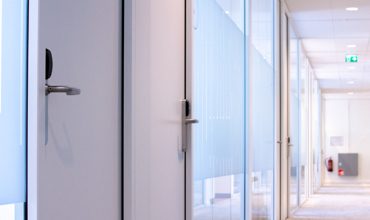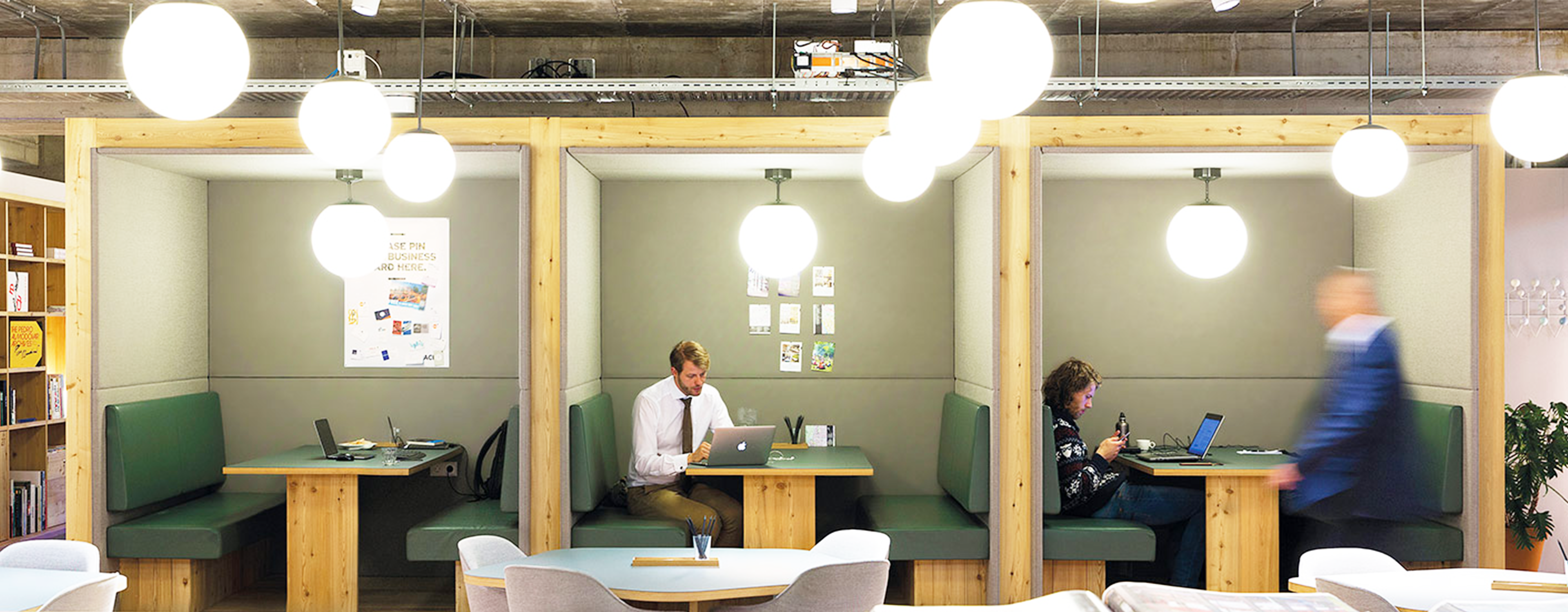Coworking spaces are an integral part of future non-standard forms of employment and are expected to be transformed to host more people from diverse backgrounds under one roof. But where is this transformation leading to? We present three trends in the coworking market that will shape our understanding of work.
When the first official “coworking space” opened its doors in San Francisco in 2005, it had a capacity of five to eight desks available for two days a week. Since that time an exciting evolution has taken place with coworking spaces taking the shape of office blocks, abandoned factories and coffee shops. The estimates of the Global Coworking Survey 2018 show that the number of coworking spaces is getting closer to 19,000 and 1.7 million people will be working in these spaces by the end of this year!
Looking beyond the official records of the first coworking spaces, the concept of coworking hubs as a centre of innovation dates back to the 15th century. Bottega workshops based in Florence hosted scientists, architects, engineers, sculptors and painters to share knowledge and improve their craft. Regardless of time and location, coworking spaces have strived and they are not going to stop anytime soon with an expected number of 3.8 million members by 2020.
Looking beyond the official records of the first coworking spaces, the concept of coworking hubs as a centre of innovation dates back to the 15th century. Bottega workshops based in Florence hosted scientists, architects, engineers, sculptors and painters to share knowledge and improve their craft. Regardless of time and location, coworking spaces have strived and they are not going to stop anytime soon with an expected number of 3.8 million members by 2020.
Deskmag states big players in e-commerce push demand for physical retail space to go down, big-box retailers realize the necessity to innovate their business model for the shopping centres. A key element of their diversification strategy for 2030 is coworking spaces. Retail outlets are developing their own coworking brands and form retail-tech ecosystems that host coworking, events, demos and pop up shops. Bespoke, 40,000 square feet at Westfield San Francisco Centre, is one of the examples of a retail ecosystem where corporate and start-up members work together across industries such as payments, artificial intelligence, retail analytics, virtual reality and e-commerce. This emerging trend is not dependent on geographical location. From San Francisco to Melbourne, from Moscow to Shanghai, it is a chance to be embraced on a global level.

Results of the Global Coworking Survey 2018 indicate that one of the most anticipated trends in the market is the development of niche coworking spaces and the diversification of its offerings. There is an increasing demand for coworking spaces catered for needs of a specific community. One of the perfect examples of a niche space is the Wing, a women-only coworking space and a social club. Launched in 2016, the Wing has started from a stunning location in New York. Now it is expanding to Los Angeles, San Francisco and Seattle and going international to London and Toronto. Started as a coworking space for young female professionals, the Wing has transformed into a startup factory. Considering fast growth rates and long waiting lists for speciality hubs, working with professionals from complementary industries helps people to push their level of expertise, performance and innovation to a higher level.
We are looking forward to see more niche coworking spaces that contribute to more diversity!

Coworking spaces not only represent a creative solution for business model innovation for the retail industry. While tech giants Google and Cisco expressway have shown interest in the coworking market, corporate real estate players plan on implementing coworking spaces. Bosch and its Platform 12, a major innovation hub, launched The Chicago Connectory, an IoT innovation and co-creation space. The fifth largest construction company in the world, Skanska, is going to open Scandinavia’s largest innovation hub. A partnership between corporate real estate firms and coworking market is going to result into well-serviced environments, more beautiful spaces and better user experience. Amsterdam-born Spaces, one of the largest providers of coworking spaces in the Netherlands with the international presence in London, New York, Melbourne and Sydney, follows the same strategy. In partnership with Facebook and Uber, Spaces has been transformed into “working club” where ICT companies, legal and financial institutions and freelance community can collaborate and transfer knowledge. More exciting partnerships are to be formed and coworking spaces are becoming the playground for large-scale acquisitions and nurturing potential industry disruptors.

A shift towards the creation of new workspace experience requires an efficient way of managing coworking spaces. One of the starting points for better usage of commercial space is to secure your space with smart lock technology.
Get to know more about SALTO KS wireless access control and how companies have successfully integrated their existing management tool with SALTO KS here.
-
SALTO KS provides a flexible access control management system that requires no software installation or the added expense of a fully-wired electronic product. Modern cloud-based, wireless access control system is easy and simple to use for businesses including Coworking Spaces, Coliving Buildings, Purpose Built Student Accommodation, Retail, Multi-Tenant Housing, Gyms and many more. Our best in class wireless access control solution and smart locks guarantee the efficiency for your business. Integrate smart locks, start easily managing wireless access control now!

